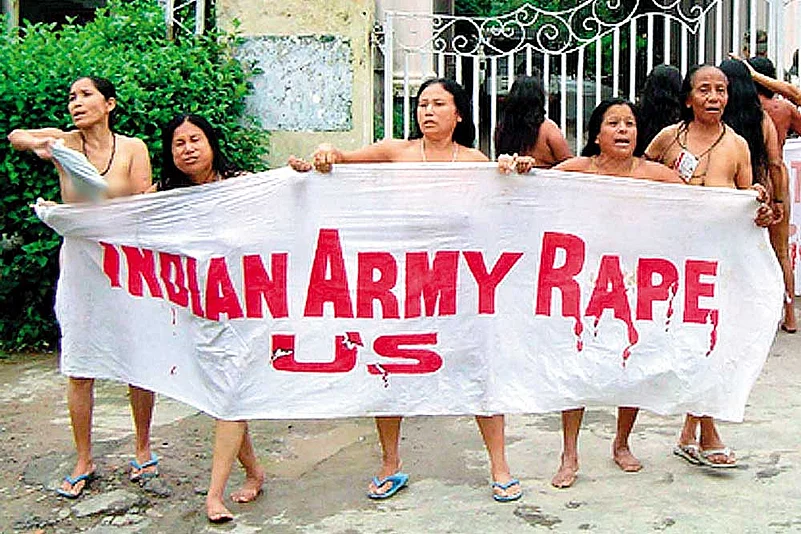As the February 2016 JNU row makes a comeback with Delhi police finally filing the charge-sheet after three years, the spotlight is back on sedition—a colonial-era law described by Mahatma Gandhi as the “prince of the political sections of the IPC designed to suppress the liberty of the citizen”. Sedition charges were slapped on 10 students for allegedly shouting anti-national slogans in a gathering, rekindling the debate on scrapping the law. The court slammed the police for filing the 1,200-page charge-sheet without approval from the Delhi government. Amnesty India head Aakar Patel, who wrote to Delhi CM Arvind Kejriwal asking him not to miss the opportunity to end the use of the “repressive” law, says it is frequently used against activists, journalists, lawyers and rights defenders.
Amnesty India too was charged with sedition in 2016, in a case related to an event held in Bangalore to seek justice for victims of violence in Jammu and Kashmir. Though a local court closed the case recently, the organisation was “branded anti-national and criminalised” during the two years, points out Patel. “A remnant of colonial power, Section 124A of the Indian Penal Code (IPC) has no place in a society governed by the rule of law,” he says. “As it is excessively vague and broad, the State uses it as a tool to stifle dissent and debate. Although courts have repeatedly held that an expression must involve incitement to imminent violence for it to amount to sedition, it is regularly used against those voicing critical opinions.”
The Supreme Court narrowed down the purview of sedition in the Kedar Nath Singh case (1962), making it applicable only when provocative language is backed up with actions to overthrow the State, but activists and lawyers complain that the police largely do not abide by this, and that the law is used to target political opponents as well as citizens dissenting against the State. Among recent cases are those against Sahitya Akademi award-wining Assamese writer Hiren Gohain, Krishak Mukti Sangram Samiti leader Akhil Gogoi and journalist Manjit Mahanta for criticising the citizenship amendment bill.
Delhi-based lawyer Vrinda Grover says there is sufficient evidence to show rampant misuse and abuse. “The law is frequently invoked, and by the time there’s judicial appreciation, whether in a trial court or a higher court, the targeted person would have faced much suffering. It should be deleted altogether or strict guidelines laid down and enforced,” she says. Agrees Colin Gonsalves of the Human Rights Law Network (HRLN). “Just like it did with Section 377, the Supreme Court must now declare the sedition law unconstitutional so there is no further ambiguity as to its legality. There is no question of redefinition. It has been repealed all across the world,” he says. Congress leader Shashi Tharoor too has moved a private member bill for redefining the provisions of the sedition law.
Then there is the Unlawful Activities (Prevention) Act (UAPA), which allows prolonged imprisonment without trial. It has drawn much flak from rights activities for being used in political witch-hunts. The stringent provisions of this law became a talking point after nine activists, lawyers and writers were arrested by the Pune police on charges of inciting violence at Bhima-Koregaon village on January 1, 2018, and also accused of having links with the outlawed CPI(Maoist). One of the accused, academic Anand Teltumbde, got temporary protection from arrest from the Bombay High Court until February 22.
Teltumbde’s lawyer Mihir Desai says cases against activists are driven by political interests and vendetta. Desai is convener of the People’s Union of Civil Liberties (PUCL) in Maharashtra and believes that “black laws” such as UAPA and Section 124A should be repealed. “There is no need for these additional laws. The criminal laws in the IPC are sufficient to deal with terrorism. Extraordinary provisions in laws like UAPA are used to stifle freedom of expression,” he says, adding that Parliament can do away with these draconian laws just like it did with previous anti-terror laws, TADA and POTA.
An activist of the Maharashtra-based Committee for Protection of Democratic Rights says these laws have been used against those who “challenged anti-people policies of the State”. “The idea is to keep them in jail as long as possible,” says the rights activist, who didn’t wish to be named.
In the northeastern state of Manipur, gross human rights violations are almost inextricably linked in public discourse with the region being officially deemed a “disturbed area” and put under the Armed Forces (Special Powers) Act (AFSPA). According to Babloo Loitongbam of Human Rights Alert, Manipur accounts for 60 per cent of UAPA detentions in India, while accounting for only 0.4 per cent of the country’s population. “AFSPA enables impunity to gross atrocities by the armed forces, and the victims are mostly people whom the State finds inconvenient,” he says. “It creates an environment where killings and disappearances take place in large numbers. We have countered it by organising the victims and helping them in taking legal action, both individually and collectively. We also conduct workshops for them with the help of clinical psychologists.”
Loitongbam believes the stakes are higher in conflict zones like Manipur and Kashmir because of the “paranoia created by citing national security”. Recently, the National Security Act (NSA), a preventive detention law, was invoked against a Manipur journalist for his Facebook posts, leading to sharp responses from many quarters. Shreeji Bavsar, lawyer with HRLN, who handled the NSA charges against Bhim Army chief Chandrashekhar Azad says such laws are slapped on people to paint them as threats to the nation. The Uttar Pradesh government withdrew NSA cases against Chandrashekhar last September, a day before the case was to be heard in the Supreme Court.
“It’s difficult to get bail when clubbed with terror charges. One gets bail in the trial court only in rarest of the rare cases,” says Bavsar. “The intention of the State in framing people is not to convict them, but to just keep them in jail as long as possible.”


























